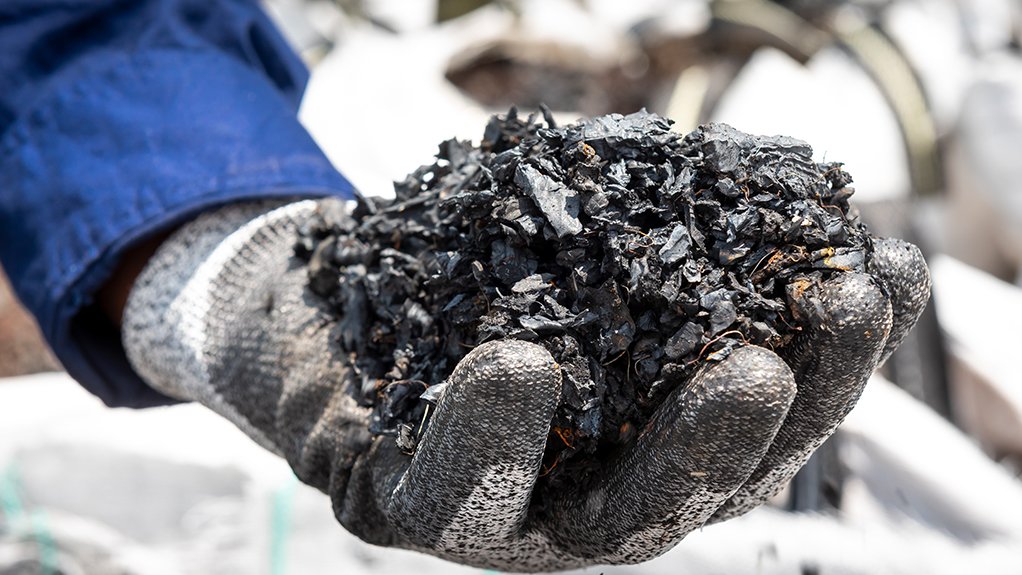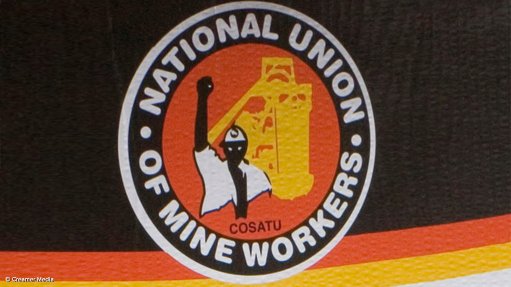Circular economy uptake addressed


GETTING TIREDThe world does not have enough resources to cater to the growing population, forcing companies to take up the circular economy
The need for and uptake of the circular economy mindset by larger organisations locally and globally was addressed during a webinar hosted by the Southern African Institute of Mining and Metallurgy (SAIMM) last month.
The webinar, titled ESGS Webinar: Circular economy: Opportunities and Benefits, was chaired by SAIMM environmental, social, governance and sustainability committee founder Gordon Smith, and the key speaker was leading platinum producer Anglo American Platinum sustainable impact head Steven Bullock.
Bullock discussed the group’s strategy to address not only its production waste but also its zero waste-to-landfill initiative, improving on its waste management and sustainability.
The initiative, introduced in 2013, has resulted in a decrease in waste to landfill from 22.12 kt of waste in 2013 to about 1.3 kt of waste in 2020, which translates to a 92% reduction so far.
Anglo American’s recently developed biogas plant at its Unki mine in Shurugwi, in Zimbabwe, is being used as a pilot project for the group.
Construction of the plant began in 2019 and was completed by February 2020.
The procurement and installation of appliances – including two tailor-made commercial oil jacketed cooking pots – was undertaken in November 2020 and subsequent quality checks, performance verification and commissioning were completed in July 2021.
It introduced the biodigester to generate biogas through the sustainable treatment of biodegradable waste, which has set a leading example for other institutions, Bullock pointed out during the webinar.
There are limited offset and recycling resources available at Unki, external to the operations, therefore, the company implemented a small-scale incinerator to thermally treat waste that cannot be reused or recycled.
The Unki complex processes an average of 35 t of biodegradable waste a month.
Of the 35 t, the plant is treating between 25 t and 27 t of waste a month, with the remaining waste being collected by the community for use as pet food.
In addition, about 8.5 t of sewage solids, diverted from one of the site sewage treatment plants every month, are fed directly into the biodigester.
The plant generates gas that is used for cooking, saving about 140 kWh/d of conventional electricity.
Unki and Zimbabwean statutory body the Rural Electrification Fund (REF), which designed, built and commissioned the plant, have received increased benchmark enquiries from other Anglo operations and other mining houses, as well as private and public institutions wanting to implement the technology.
The Unki Complex general waste landfill was decommissioned in 2020 after biodegradable waste was diverted to the biodigester and is now being subjected to rehabilitation.
Gaining Ground
The Mogalakwena mine in Mokopane, Limpopo, has upscaled an initiative that successfully trialled in 2021, to produce compost using suitable materials generated on site.
The compost is used to improve the conditions of soil used for mine rehabilitation instead of buying chemical-based fertilisers.
“We recorded a saving of about R32-million in a year merely by avoiding transport and disposal costs across our operations,” Bullock enthused.
Further, waste streams, such as food packaging and mixed waste, are then used in the production of refuse-derived fuel.
Additionally, building rubble is used as a resource at the clinker steel and waste management facility.
Other innovations include separating the components of air filters for recycling, and reusing flax, with Bullock stating that the company works extensively with suppliers to also reduce the volumes of waste at operations.
Anglo American also supports capital investment company AP Ventures, which looks at startup ventures in the hydrogen economy space and continues to research and develop its hydrogen-powered ore truck at its Mogalakwena mine.
Anglo American has also invested in a renewable-energy transition programme which aims at carbon neutrality by 2040.
Bullock pointed out that the Anglo American Group, both locally and globally, has also introduced the circular lab concept to help drive initiatives across its business.
“We have set up a fund where employees can then apply for access to financial assistance to drive their circular economy-related ideas in-house,” he added.
Through the circular lab process, Anglo American encourages all employees to come up with ideas to improve on its current environmental and sustainability efforts.
More than Recycling
“The circular economy is about minimising waste in all its forms and making the most of what we have, natural resources included,” explained Bullock.
A circular economy is about transforming the linear business models that society has depended on for so long and built on the principle of take, make and dispose into models that are regenerative by design.
An analysis shows that the total demand for resources is expected to reach about 150-billion tons by 2050, up from 50-billion tons in 2014, and an overuse of the earth's total capacity by more than 400%, he added.
By 2030, there will be about 2.5-billion new consumers joining the middle class, adding more demand to already strained resources.
“Our economic growth trajectories are simply unsustainable, the world doesn't have enough resources, and the circular economy is needed to mitigate this issue,” he concluded.
Article Enquiry
Email Article
Save Article
Feedback
To advertise email advertising@creamermedia.co.za or click here
Press Office
Announcements
What's On
Subscribe to improve your user experience...
Option 1 (equivalent of R125 a month):
Receive a weekly copy of Creamer Media's Engineering News & Mining Weekly magazine
(print copy for those in South Africa and e-magazine for those outside of South Africa)
Receive daily email newsletters
Access to full search results
Access archive of magazine back copies
Access to Projects in Progress
Access to ONE Research Report of your choice in PDF format
Option 2 (equivalent of R375 a month):
All benefits from Option 1
PLUS
Access to Creamer Media's Research Channel Africa for ALL Research Reports, in PDF format, on various industrial and mining sectors
including Electricity; Water; Energy Transition; Hydrogen; Roads, Rail and Ports; Coal; Gold; Platinum; Battery Metals; etc.
Already a subscriber?
Forgotten your password?
Receive weekly copy of Creamer Media's Engineering News & Mining Weekly magazine (print copy for those in South Africa and e-magazine for those outside of South Africa)
➕
Recieve daily email newsletters
➕
Access to full search results
➕
Access archive of magazine back copies
➕
Access to Projects in Progress
➕
Access to ONE Research Report of your choice in PDF format
RESEARCH CHANNEL AFRICA
R4500 (equivalent of R375 a month)
SUBSCRIBEAll benefits from Option 1
➕
Access to Creamer Media's Research Channel Africa for ALL Research Reports on various industrial and mining sectors, in PDF format, including on:
Electricity
➕
Water
➕
Energy Transition
➕
Hydrogen
➕
Roads, Rail and Ports
➕
Coal
➕
Gold
➕
Platinum
➕
Battery Metals
➕
etc.
Receive all benefits from Option 1 or Option 2 delivered to numerous people at your company
➕
Multiple User names and Passwords for simultaneous log-ins
➕
Intranet integration access to all in your organisation



















